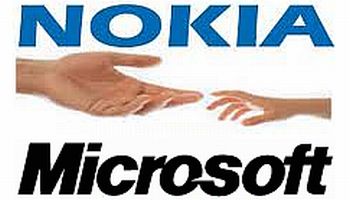Nokia Tablet Strategy Could Exclude Microsoft

Nokia may opt for MeeGo or Android rather than Windows or Windows Phone for its first tablet
Nokia is rumoured to be considering a move away from Microsoft in its plans for future tablet devices.
On 11 February, Nokia announced it was moving to Windows Phone as its primary smartphone platform. However, a person with knowledge of the company has told Reuters that the Finnish phone maker is still considering its options for tablets.
The source explained that Nokia wants its first tablet device to be distinctive, and tie in with strategies for other screens, including television. “That could include Microsoft, it may not,” the source said.
Time for MeeGo?
There is widespread speculation that Nokia may turn to MeeGo – the open source operating system formed by the merger of Nokia and Intel’s Linux-based platforms, Maemo and Moblin – to make its mark in the rapidly expanding tablet market. Grainy images of an unidentified Nokia tablet reportedly running MeeGo appeared in January, fuelling the rumours.

eWEEK Europe got a look at the MeeGo operating system running on a tablet at Mobile World Congress last month, and we liked what we saw. MeeGo moves away from the traditional apps-based layout, which Apple’s iPad adopted from the iPhone, and instead focuses on putting all the information of the user’s home page, making it easily accessible.
Google’s Android operating system is also in the running, of course, with Android tablets expected to overtake the Apple iPad’s market share by 2014. During a keynote speech last month, Google CEO Eric Schmidt expressed regret that Nokia had adopted Windows Phone 7 and not Android for its smartphones, but suggested that a future partnership was still on the table.
“We would like them to adopt Android in the future and that offer remains open. We certainly tried,” he said.
Standing out in the market
In relation to the decision, Nokia CEO Stephen Elop said that the company had explored the Android option and admitted there were some attractive elements to it. “However, our fundamental belief is that we would have difficulty differentiating within that ecosystem,” he said at the time.
Whichever operating system Nokia chooses, it could have a tough time catching up with rivals, some of whom have been in the market for more than a year. As Apple’s iPad 2 and tablets running Android Honeycomb continue to grab market share, new players – including HP’s WebOS-based TouchPad – will find it increasingly difficult to carve a niche for themselves.
Microsoft is not expected to be ready with a platform optimised for tablets before late 2012. Forthcoming Windows tablets are expected to be based on the Windows 8 operating system, rather than Windows Phone 7.